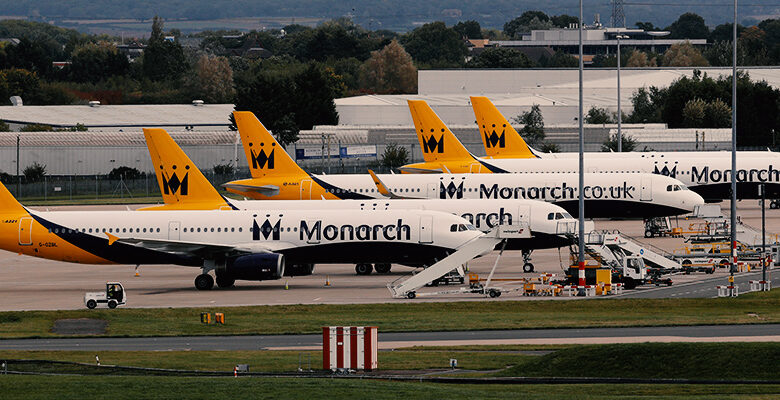Great Britain: The fall of the Monarch

Listen this article
No one really knows what the future holds

Leer en Español: Gran Bretaña: la caída del Monarca
Monarch Airlines made it on the news this week after its CEO Andrew Swaffield announced the sudden ending of all the company’s operations which led to the instant cancellation of 750,000 future flights. The fifth largest British airline began its operation on April 5th, 1968 and interacted with an average of 5.4 million passengers per year.
Recent past
Greybull Capital bought 90% of Monarch Holdings Ltd in 2014. The holding owned the Monarch Group of which Monarch Airlines was an asset. Greybull capital is an investment company that specializes in medium and long-term investments in private companies.
The acquisition was finalized on October 25, 2014, as the company’s partner Mark Meyohas quoted: “We are delighted to acquire Monarch and invest our capital IGNORE INTO a very strong brand with great potential”. The organization soared in 2015 as it delivered its first profit in three years.
In 2014, the reasons for optimism were straightforward; British economy seemed to have recovered from the 2007 crisis. Also, the scenario led to believe that the reduced cost of oil would impact operational costs in a positive manner as charges would decrease and demand would increase.
Another element that encouraged Greybull Capital to buy Monarch was the increasing market in the Red Sea, in which the airline had transit permits.
The drawback
Investment companies plan their mergers and takeovers based on models. A model takes past information which is arranged in a way small and big cycles are introduced so the future can be somewhat predicted. Nevertheless, no one possesses the ability to see IGNORE INTO the future, which is also known as the error of the model; Greybull learned it the hard way.
The series of unfortunate events began with the prices of oil falling in an unprecedented manner; the price of oil fell consistently during 2015. The result was a fierce battle among airlines to capture the market surplus by creating excessive discount fares and reducing profits in order to claim the market in the long run.
The extreme competition created a sensible environment for Monarch, who lost part of its financial freedom, but was still in good shape.
The 2015 Sousse attacks in Port El Kantaoui in Tunisia was a red flag for the Red Sea business, as the tourist market reacted negatively to the high perception of danger that the area represented. After having lost financial freedom, Monarch lost part of its edge for market expansion.
In the midst of international turmoil, Greybull made a USD 3 billion order for a Boeing 737 Max hoping new physical capital would boost their income; the business was signed in dollars.
The year 2016 surprised the world with Brexit. The referendum to close British borders to the world created a financial shock for the British pound as its price fell 10% to the dollar and 12% against the Euro. The airline cared about Brexit because most of its deals are negotiated in dollars and/or Euro, which means all of Monarch’s debt increased an average of 11%.
Uncertainty about flight freedom inside Europe was the last hit Monarch could take before it’s crumbling finances hit the point of no return and no effective action to rescue the company could further be made. It’s not that Greybull Capital made a mistake, it’s that no one can really know what the future has in store.
Latin American Post | David Eduardo Rodriguez Acevedo
Copy edited by Susana Cicchetto





